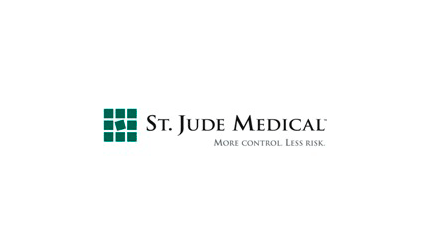
FFR-Guided PCI Outperforms Drug Therapy Over Two Years in FAME 2 Trial
Patients with stable coronary artery disease who were treated with medicines plus fractional flow reserve-guided percutaneous coronary intervention, or FFR-guided PCI, had fewer deaths, heart attacks and urgent revascularizations than patients treated with drugs alone, according to two-year data from St. Jude Medical’s FAME 2 clinical trial.
The randomized FAME 2 study, which launched in May 2010, examined the use of St. Jude's PressureWire Aeris and PressureWire Certus intravascular pressure sensors. The medical therapy consisted of daily aspirin, a beta blocker used alone or in combination with a calcium channel blocker and/or long-acting nitrate, and blood pressure medication.
Over the two years, patients in the PCI group had an 8.1 percent rate of death, heart attack or urgent revascularization, compared with 19.5 percent of patients on drug therapy alone, St. Jude reports. The biggest difference was seen in urgent revascularization — 4 percent in PCI patients versus 16.3 percent in the control group.
FFR identifies which coronary narrowings are responsible for obstructing blood flow to the heart and helps to determine which of those warrant stenting.
According to the St. Paul, Minn., devicemaker, more than 1,200 patients enrolled in 28 centers across the U.S., Canada and Europe before the study was halted in January 2012 due to strong positive results. — Kellen Owings
Subscribe to Devices & Diagnostics Letter for complete coverage of the medical devices industry. Click here for more information.
